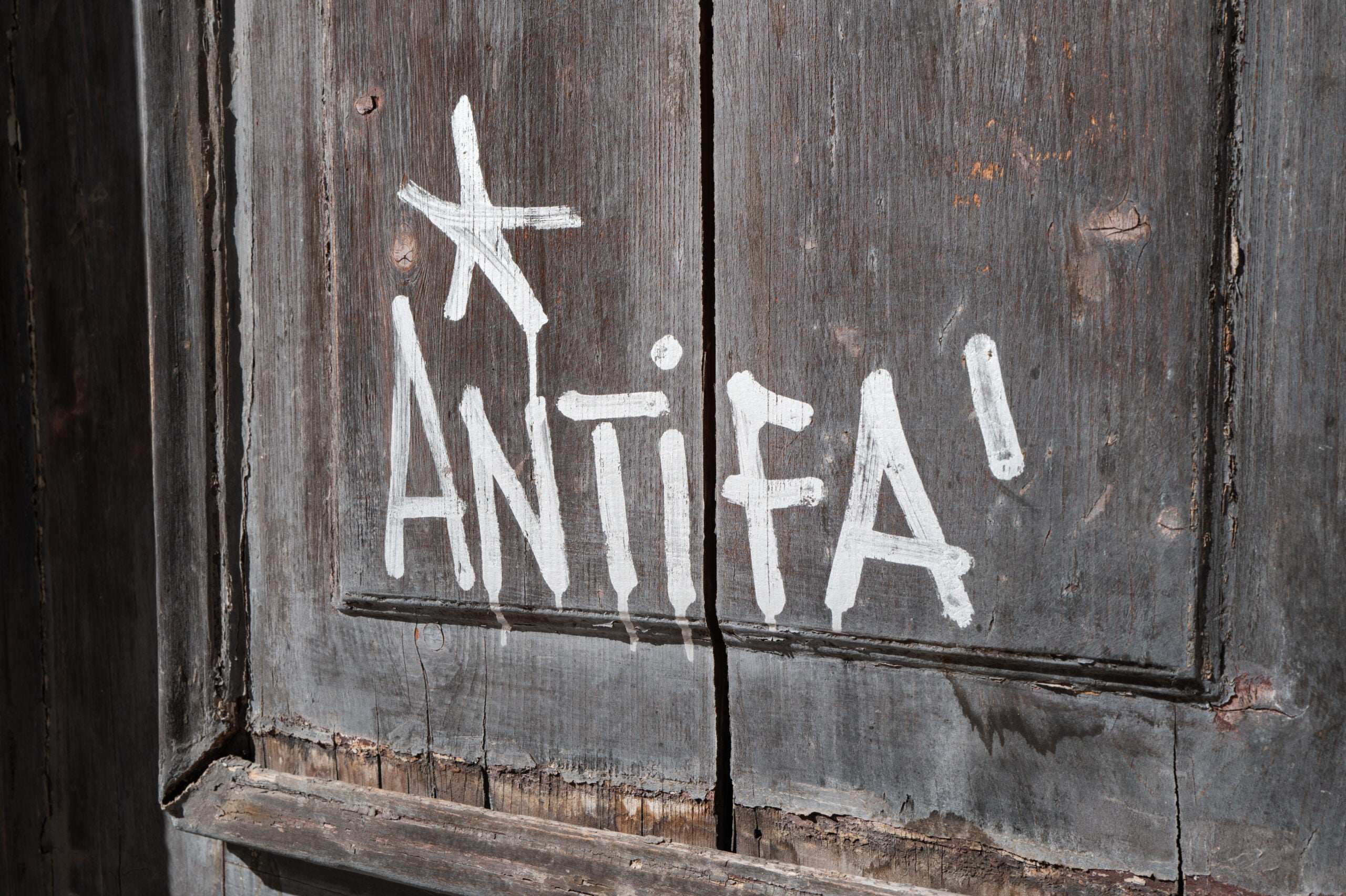


With the rise of left-wing terrorism, as epitomized by the assassination of conservative activist Charlie Kirk on Sept. 10, congressional Republicans are doubling down on their efforts to combat violence perpetuated by Antifa and its affiliates.
Rep. Brandon Gill, R-Texas, spoke with The Daily Signal about the efforts being undertaken by the White House and Republicans in Congress to hold Antifa accountable for its crimes.
“Antifa has wreaked havoc on our nation for years through their violent and militant anarchy, especially in radical leftist cities like Portland, Oregon. I applaud President Trump for designating them a domestic terrorist organization,” the Texas congressman said.
But there is more Republicans in Congress can do to support Trump’s decree, he added: “Congress should eagerly back his efforts to protect our national security from these destructive internal threats.”
In January, Rep. Marjorie Taylor Greene, R-Ga., introduced a House resolution that would codify the president’s designation of Antifa as a domestic terrorist organization into law. The proposed legislation details multiple instances of unlawful activity by Antifa and its affiliates, including the doxing of at least 1,500 Immigration and Customs Enforcement employees in 2018, and the attempted firebombing of an ICE detention facility in 2019 by a self-identified Antifa member.
Greene’s House resolution was cosponsored by Republican Reps. Clay Higgins of Louisiana, Mary Miller of Illinois, Andy Biggs of Arizona, and Wesley Hunt of Texas.
Hunt, a combat veteran of the Iraq War having flown dozens of missions as an Apache helicopter pilot, described to The Daily Signal what he hoped the bill would accomplish.
“Labeling Antifa a terrorist organization and bringing the full force of the federal government down on their networks lets us do more than talk. It lets us choke off funding, freeze assets, and give Treasury and law enforcement the legal tools to sanction and prosecute those who bankroll and enable political violence,” the Texas congressman explained.
Hunt went on to note the effects left-wing violence has had on American society.
“Make no mistake: This isn’t an abstract debate. During the riots and violent protests of recent years, Antifa-linked actors have been involved in attacks on federal buildings and caused widespread chaos in our cities, and law enforcement, Congress, and the Trump administration have all recognized the threat and moved to counter it,” Hunt said.
“They’re not just a collection of words on a protest sign. They’ve behaved like a coordinated, dangerous network in too many places,” he continued, adding:
It’s time to stop arguing about labels and start using every lawful tool to dismantle the funding, the logistics, and the command-and-control that make these attacks possible.
“We should be clear-eyed and relentless: Crush this left-wing arm of terror, prosecute the criminals, seize the money, and restore safety in America. There’s no place in this country for political violence,” Hunt concluded.
Some members of the Senate have also spoken out about the need to do more to end the normalization of violence in the name of left-wing causes.
“I will always defend political speech, but I will never defend political violence. When organizations like Antifa attack police, hurl Molotov cocktails, and engage in violent sabotage, they go beyond speech and engage in political violence. They must be met with the full force of the law,” Sen. Eric Schmitt, R-Mo., told The Daily Signal.
“It is time to take concrete action to stop their reign of left-wing terror, not just in our nation but across the world. I’m urging the administration to take immediate action and designate the foreign Antifa networks as foreign terrorist organizations, so we can paralyze the international support of an organization designated by the Trump administration as domestic terrorists,” the Missouri senator added.
Sen. Mike Lee, R-Utah, noted to The Daily Signal the time frame over which left-wing violence has been allowed to grow.
“For years, Antifa has engaged in violence, vandalism, intimidation, and attacks on law enforcement, journalists, and private citizens alike, for the explicit purpose of advancing a radical, left-wing political agenda. President Trump is right to designate them a terrorist organization and ensure they do not endanger any more Americans,” the Utah Republican stated.
Julio Rosas, the national correspondent for The Blaze, has extensively covered Antifa and was recently at a White House event highlighting the scourge of Antifa and left-wing violence.
Rosas is optimistic that Congress has already created the laws necessary for effective law enforcement. “Congress doesn’t need to do more. Basic laws regarding organized criminal groups need to be enforced,” Rosas told The Daily Signal.
“Antifa, as loose as it is with its structure, is still a group that organizes violent attacks on law enforcement and journalists. Other criminal organizations such as theft rings are prosecuted in such a way, and Antifa is no different in that regard,” Rosas said.
Related posts:
- EXCLUSIVE: Lawmakers Sponsor Resolution Commemorating 1782 Bible
- ‘Certainly Fitting’: GOP Lawmakers Hail Trump’s Plan to Award Medal of Freedom to Kirk
- 16 Members of Congress Call for Statue of Charlie Kirk in Capitol
